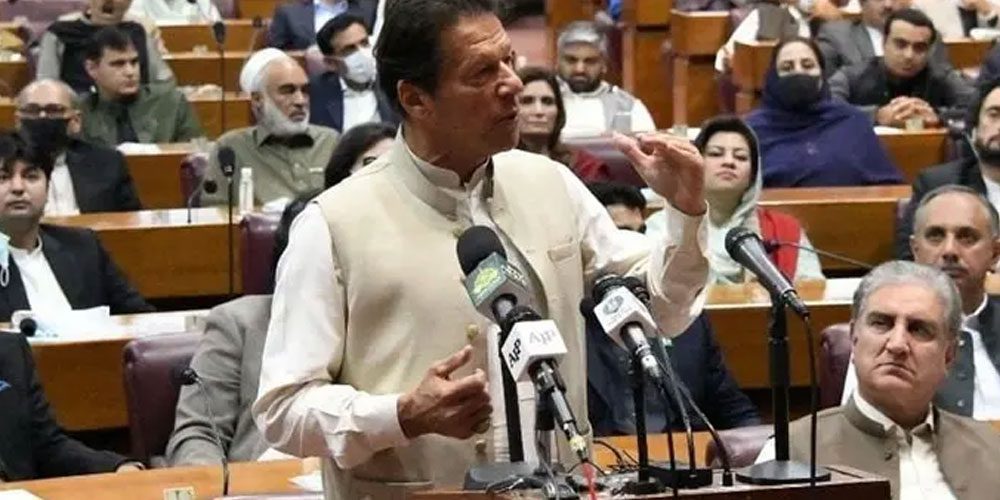Pakistan Tehreek-e-Insaf (PTI) has been facing various political crises since the party came into power in 2018.
A delegation of senior lawmakers, affiliated with Pakistan Democratic Movement and the PPP on Mar 8 submitted with the National Assembly secretariat a resolution calling for a no-confidence vote against Prime Minister Imran Khan.
The development demonstrates the confidence of the combined opposition that it has mustered enough votes in the National Assembly to oust the PTI government.
National Assembly session
NA Speaker Asad Qaiser has summoned the session of the lower house to deliberate on the opposition’s no-confidence resolution against Prime Minister Imran Khan on March 25 (Friday) at 11am.
The session, which will be the 41st of the current National Assembly, was summoned after the joint opposition made the requisition for it under Article 54 of the Constitution along with the submission of the no-confidence motion against the prime minister.
According to Article 54, once a session of the National Assembly has been requisitioned with signatures of at least 25 per cent of the members on it, the speaker has a maximum of 14 days to summon a session. Therefore, the speaker had to call the lower house in session by March 22.
However, according to a notification issued from the NA Secretariat, a motion was adopted by the National Assembly on January 21 to allow the exclusive use of its chamber for the 48th session of the Organisation of Islamic Countries (OIC) Council of Foreign Ministers on March 22 and 23.
It further said that due to its own chamber’s unavailability, the NA Secretariat had asked the Senate Secretariat to provide its chamber for the lower house’s session but it was also unavailable due to renovation work.
“Therefore, in exercise of the powers conferred upon me under clause (3) of Article 54 of the Constitution … I herby summon the session of the National Assembly on the first available date i.e. 25th March,” the notification issued in Qaiser’s name stated.
The numbers game
For a no-confidence motion to be successful, the support of a simple majority — 172 of the total 342 members — in the lower house of parliament is required.
The opposition claims they have the numbers needed, with Fazl adding that they have been aiming for the number of 180.
PML-N leader and former prime minister Shahid Khaqan Abbasi said that to reach the number of 172, a total of 162 members would be provided by opposition parties and one by the Jamaat-i-Islami.
He added that two members of the ruling party were “openly against” it, leaving a gap of seven votes. “The numbers we have are much more than that,” he said.
What happens next?
According to the Constitution, if a no-trust resolution against the premier is passed by a majority of the total membership of the lower house, the prime minister ceases to hold office. After the premier is removed, the National Assembly must immediately vote to elect a new leader.
NA Rule 32 states: “After the election of the Speaker and the Deputy Speaker following a general election or whenever the office of the Prime Minister falls vacant for any reason, the Assembly shall, to the exclusion of any other business, proceed to elect without debate one of its Muslim members to be the Prime Minister.”
When will the no-confidence motion be tabled?
Ahead of the no-confidence motion against Prime Minister Imran Khan, the government has now moved to the Supreme Court seeking its advice on how to treat the defectors. This will buy some time for Imran Khan.
A five-member bench, headed by Chief Justice of Pakistan Umar Ata Bandial, heard the presidential reference seeking the top court’s opinion on Article 63-A of the Constitution, which deals with the disqualification of parliamentarians. The no-confidence motion against Imran Khan is likely to be brought on March 25.



































